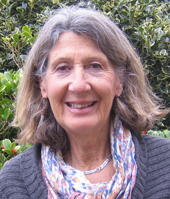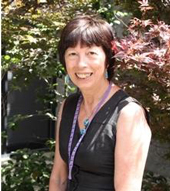APS College of Counselling Psychologists
Invited speakers
Professor Pam James
 Counselling Psychology in the U.K. over a 30 year passage
Counselling Psychology in the U.K. over a 30 year passage
Biography
After graduating with an honours degree in Psychology, Pam’s doctorate thesis was in the area of students’ learning. Pam taught science in secondary schools for a short time, and preschool learning in continuing education, followed by a lectureship in higher education in social psychology, and obtaining BPS Chartership. Pam became a Chartered Counselling Psychologist via the independent route and was on the academic staff at Liverpool John Moores University for 23 years (retiring in 2010) where she held positions in management and was awarded Professor of Counselling Psychology in 2000. Pam is currently Chair of the BPS Division of Counselling Psychology and has relinquished Chair of the Board of Assessors in Counselling Psychology in September 2012. She worked sessionally for several years in NHS adult mental health and currently has a small independent practice.
Abstract
Counselling Psychology was established as a British Psychological Section in 1982. Contextually, it arose at a time when the subjective view of the other had less emphasis in therapeutic casework. Now, as a Division, it is a professional body with its own specialist field of knowledge, professional training courses and career structure. However, currently, there have been changes in the way mental health issues are cared for in the workforce.
Counselling Psychology brings together two basic traditions in psychology. Firstly, it appreciates subjectivist, phenomenological traditions emphasising the uniqueness of each individual human experience. Secondly, it is experimental and positivistic; appreciating that it is possible to be objective, particularly in considering underpinning research. Those in the discipline are described as academic practitioners. Concurrent with this description is the term reflective practitioner which concerns their phenomenological stance.
Initially, the presentation will take a developmental view of counselling psychology. The second part will assess the current situation and look ahead to future prospects, taking the metaphor of evolution to see the variety of types of counselling psychologists that have developed under its wide umbrella. There is economic and political change in the current environment - choices are possible including adapting and developing; objecting and resisting may not be viable propositions. The debate can be had as to whether the underpinning philosophy of counselling psychology, together with research evidence can support its survival in the years to come.
Rosalie Pattenden
Evidence Based Approaches to Couple Therapy—not for the faint hearted!
Mini bio
Rosalie Pattenden (former Clinical Practice Leader Relationships Australia Victoria, Clinical Practice Manager CatholicCare and Private Practitioner) will explore how relationship counsellors can comply with stakeholders expectations by utilizing the best of evidence based practice, while continuing to address the deeper heart felt issues that couples are struggling with.
Abstract
The 2011 November/December issue of the Psychotherapy Networker Magazine was titled “Who’s Afraid of Couples Therapy? Ellyn Bader writes in her article that couple counselling can feel like “piloting a helicopter into a hurricane”, so many therapists choose not to go there, preferring individual work. Couple therapy is complex and challenging, dealing with deep seated emotional scars for both the individuals and for the couple relationship. Relationship Counsellors are informed by an explosion of new information from neuroscience, and an ever increasing number of therapeutic frameworks and interventions. Much of the work is long term, yet the demands of external stakeholders (Medicare, AHPRA, APS, and government funders) are focusing on shorter term interventions that are evidence based, are manualized and can substantiate effective outcomes.




